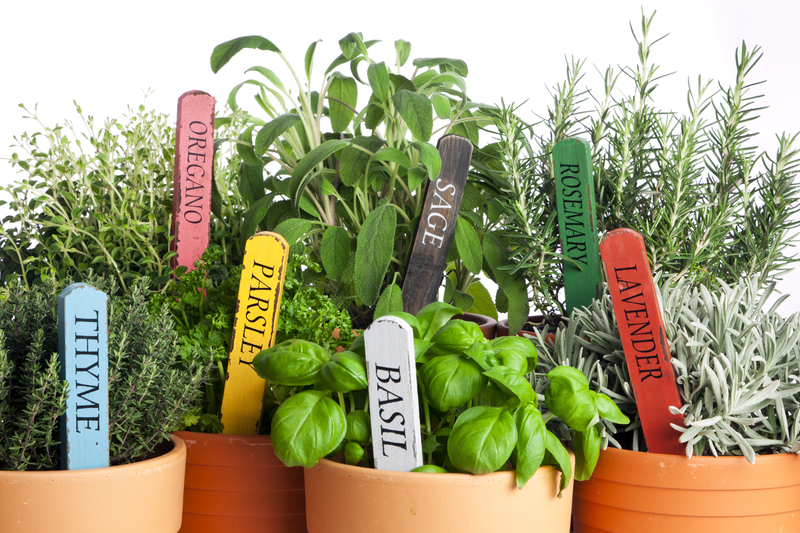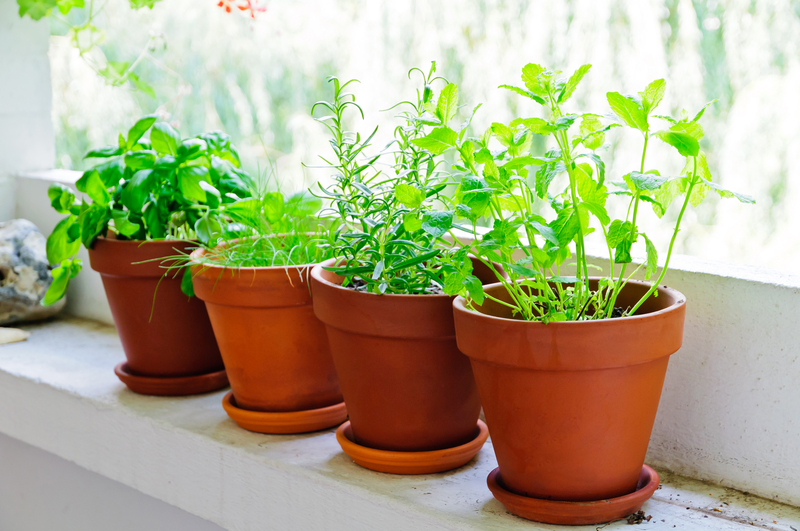Revolutionizing Soil Health: Organic Waste's Second Life
Posted on 18/08/2025
Revolutionizing Soil Health: Organic Waste's Second Life
Soil health is the foundation of sustainable agriculture, global food security, and environmental prosperity. Yet, in the face of industrial farming, urbanization, and waste mismanagement, our soils are facing unprecedented challenges. Fortunately, a powerful beacon of hope is emerging: the repurposing of organic waste into soil-enhancing material. In this comprehensive guide, we'll explore how organic waste is gaining its second life--and why this revolution could reshape our planet's agricultural and ecological future.
Understanding Soil Health and Its Importance
Before delving into how organic waste can rejuvenate the earth, it's crucial to grasp what soil health truly means. Healthy soil is a living, dynamic ecosystem teeming with microorganisms, minerals, and organic matter. Here are some vital reasons why maintaining soil health is critical:
- Productivity: Healthy soil is the backbone of plentiful and nutritious crops.
- Climate Regulation: Soil acts as a carbon sink, assisting in climate change mitigation.
- Water Retention: Quality soil improves water infiltration and drought resistance.
- Biodiversity: A thriving soil ecosystem supports robust biodiversity above and below ground.
Yet, the overuse of chemical fertilizers and poor waste management have pushed soils toward degradation. This is where the innovative use of organic waste comes into play.

Organic Waste: More Than Just Trash
Organic waste refers to biodegradable material that comes from plants or animals, including food scraps, yard trimmings, paper, manure, and agricultural residues. Traditionally, much of this waste ends up in landfills, where it decomposes anaerobically, releasing harmful methane--a potent greenhouse gas--into the atmosphere.
But what if this so-called waste were recognized for its potential as a regenerative powerhouse for the soil? Here's where the revolution begins.
Types of Organic Waste Suitable for Soil Health
- Food Waste: Vegetable peels, fruit scraps, stale bread, eggshells.
- Yard and Garden Waste: Grass clippings, twigs, dried leaves.
- Animal Manure: Cow, chicken, and horse manure (when properly processed).
- Agricultural Residues: Crop stalks, husks, fruit pulp, and cover crop remains.
How Organic Waste Transforms Soil Health
Utilizing organic waste offers a plethora of benefits to soil health and sustainable agriculture. Let's break down the main ways in which this transformation occurs:
1. Boosting Organic Matter Content
Adding composted organic waste to the soil increases its organic matter content, which improves structure, porosity, nutrient retention, and water holding capacity. This forms a nurturing bed for seeds and supports beneficial soil organisms.
2. Feeding Soil Microbes and Earthworms
Organic waste is a prime food source for soil microbes, fungi, and earthworms. This complex life forms break down organic material, releasing essential nutrients--such as nitrogen, phosphorus, and potassium--back into the soil in plant-accessible forms.
3. Enhancing Soil Fertility Sustainably
Compost and other organic amendments reduce dependence on synthetic fertilizers, supporting long-term fertility without the risk of chemical runoff or soil toxicity.
4. Suppressing Soil-Borne Diseases
Healthy organic-rich soils host a variety of beneficial microbes which outcompete harmful pathogens, leading to naturally resilient crops without excessive pesticide use.
Innovative Methods for Organic Waste Management in Soil Health
Transforming organic waste into soil health enhancers is an art and science. Here are the revolutionary ways this transition is taking place:
Composting: The Classic Solution
Composting is the controlled aerobic breakdown of organic materials into a rich soil amendment called compost. Home gardeners, urban municipalities, and commercial farms alike are embracing composting--ranging from traditional pile methods to high-tech, in-vessel systems.
Here's how composting revolutionizes organic waste reuse:
- Reduces landfill waste and its associated methane emissions.
- Produces humus--a stable form of organic matter vital for soil health.
- Encourages community involvement, from backyard to city scale.
Vermiculture: Harnessing the Power of Earthworms
Vermiculture employs earthworms to consume organic waste and produce vermicompost--a potent, microbe-rich fertilizer celebrated for boosting soil fertility and plant growth. It's ideal for households, schools, and urban farms.
Biochar: From Waste to Black Gold
Biochar is a form of charcoal produced by heating organic waste in a low-oxygen environment (pyrolysis). When added to soil, biochar increases water retention, moderates acidity, and holds nutrients, fostering long-term soil vitality.
- Stabilizes carbon in soil for hundreds to thousands of years.
- Reduces leaching of nutrients into groundwater.
- Improves soil structure and habitat for beneficial microbes.
Bokashi: Fermenting a New Path
Bokashi composting is an anaerobic fermentation method, allowing the recycling of even meat and dairy waste. The process creates acidic pre-compost material that features rapid decomposition and minimal odor, suitable for small-space and urban dwellers.
Case Studies: The Global Impact of Repurposing Organic Waste
Urban Agriculture in New York City
New York City diverts thousands of tons of food and yard waste annually for municipal composting. Community gardens and urban farms embrace this compost to rebuild local soils, strengthen food sovereignty, and reduce carbon footprints.
Regenerative Farming in India
Indian farmers are pioneering the use of farmyard manure, crop residues, and vermicompost on degraded farmlands. The results are transformative: healthier soils, increased biodiversity, higher yields, and improved income for local communities.
Circular Economy in Europe
Across Europe, municipalities and agricultural cooperatives are advancing a circular economy by collecting organic waste for large-scale composting and biochar production, thus returning essential nutrients to farmland and creating green jobs.
Environmental and Economic Benefits of the Soil-Health Revolution
- Climate Mitigation: Composting and biochar production reduce greenhouse gas emissions.
- Waste to Wealth: Organic waste is a valuable resource, not an expense.
- Resource Conservation: Reduced reliance on chemical inputs and less pollution.
- Enhanced Crop Quality: Boosts nutrition, taste, and shelf-life of produce.
- Job Creation: Composting and waste management industries generate sustainable employment.
Obstacles and Solutions in Widespread Organic Waste Utilization
Despite clear benefits, the large-scale adoption of organic waste recycling for soil health faces challenges:
- Infrastructure: Many regions lack collection and composting facilities.
- Public Awareness: Myths around composting difficulty or odor persist.
- Policy Support: Greater incentives are needed for organic waste diversion from landfills.
- Contamination: Non-organic materials mixed with compostables can degrade compost quality.
Solutions include:
- Developing separate organic waste bins and efficient logistics.
- Educational campaigns for households and businesses.
- Government subsidies and compost-buyback programs.
- Research into fast, odor-free composting technologies.
Future Innovations: What Lies Ahead?
The future of soil health through organic waste is thrilling. Advances in microbiology, data analysis, and biotechnology are paving the way for:
- Smart composting systems with sensors to optimize decomposition and nutrient content.
- Customized soil amendments tailored for specific crops and soils using waste-derived materials.
- Biofertilizer production from algae and microbial consortia grown on organic residues.
- Automated waste collection and processing using AI and robotics for maximum efficiency.
Public and private sector collaboration is vital for scaling these breakthroughs and making the organic waste revolution a cornerstone of sustainable development.

How You Can Join the Organic Waste-to-Soil Health Revolution
- Compost at Home: Start a backyard bin or explore indoor composting options like bokashi or worm bins.
- Support Local Initiatives: Participate in municipal compost programs or local community gardens.
- Purchase from Regenerative Farms: Seek out growers who use organic amendments and support soil health-focused agriculture.
- Advocate for Policy Change: Encourage your community and elected officials to invest in composting and organic waste infrastructure.
Conclusion: Embracing Organic Waste's Second Life for a Greener Tomorrow
Revolutionizing soil health by granting organic waste its second life is a win-win for people, the planet, and the economy. By transforming what would otherwise be landfill-bound material into rich compost, biochar, and vermicompost, we can restore degraded soils, bolster food security, reduce emissions, and foster a more resilient, sustainable world.
Every apple core, grass clipping, and coffee ground can become a catalyst for regeneration. It's time to join the movement and embrace the incredible power of organic waste's second life for healthier soils and brighter futures.
Latest Posts
Cultivating Fun and Safety in a Children's Garden
Control Weeds Proactively with These Smart Tips
Nature's Peace: Designing an Outdoor Zen Retreat



